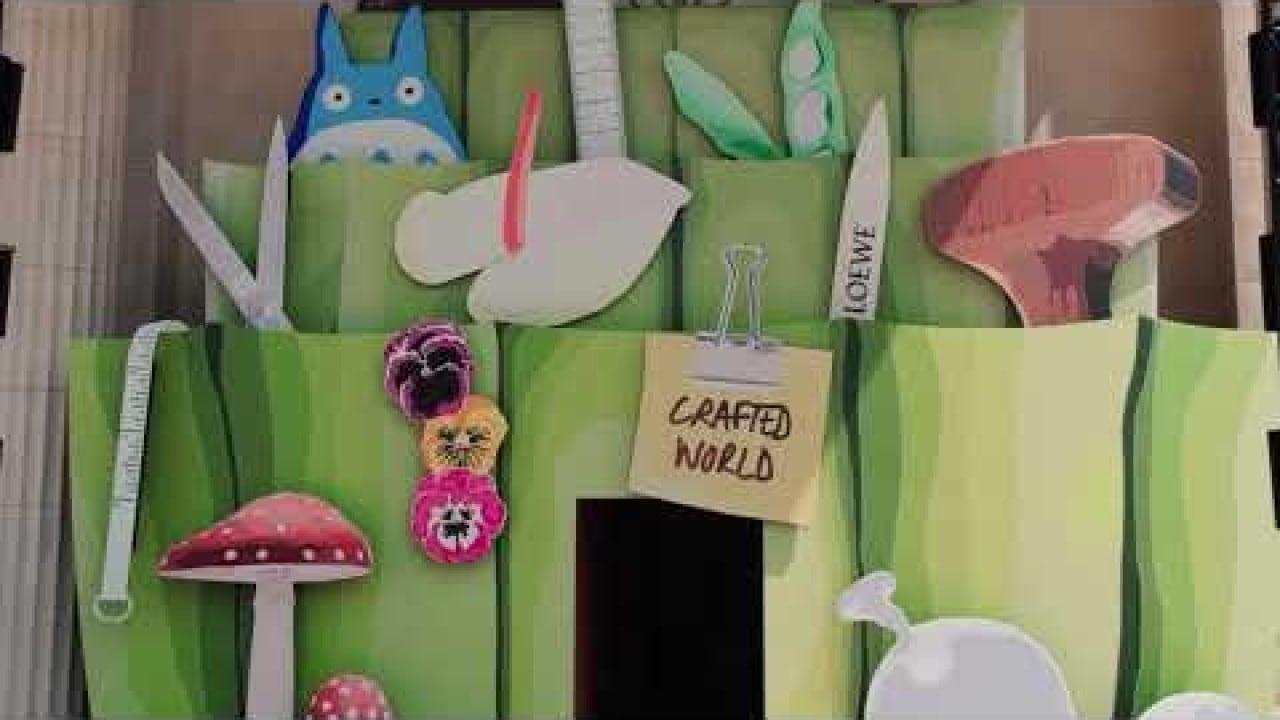Loewe highs? Jonathan Anderson looks back on an epic decade: the creative director talks art, inspiration and the ‘Crafted World’ exhibition celebrating 10 years of fashion reinvention

00:27
Style Cover: Loewe
- The Northern Irishman founded his own London-based JW Anderson label before joining Loewe in 2014 – reinventing the label as one of LVMH’s top brands, often ranked in the Lyst Index top three
- Once the official purveyor to the Royal Household of Spain and known for its Puzzle bag, under Anderson Loewe has entered a new era, collaborating with trainer label On and scoring red-carpet endorsements from Rihanna and Zendaya
The roots of leather goods house Loewe might date back to 1846, but to modern-day luxury consumers – fans of the label’s signature Puzzle bag, summer-ready raffia totes and strikingly shaped scented candles – the brand truly came to the fore just a decade ago.
Not coincidentally, that’s when a then-little-known Northern Irish designer unveiled his first collection for the LVMH-owned house. His name, of course, was Jonathan Anderson – founder of London-based JW Anderson.

Before Anderson’s arrival, Loewe had long been known for its Spanish heritage – the maison had been an official purveyor to the Royal Household of Spain – and its Amazona and Flamenco bags, but lacked a cohesive visual identity. Outside Spain, it could be found in a few other countries in Europe and Asia – notably Japan – but the label had little to no presence in key markets such as the US or China. It was a sleeping beauty waiting to be awakened, and Anderson was the one to bring it back to life and give it a much needed dose of energy.
“I’ll never forget the first show I did. It was the first big job that I had, at the Unesco [headquarters in Paris], and it was very interesting to do this thing that I never dreamed I’d be able to do for this giant group. And looking at it now, I stand by that collection,” Anderson tells Style during a recent visit to Shanghai. “It was an exciting moment. When I took over Loewe nobody thought it was going to work and I remember that moment quite fondly.”

The brand was incredibly tiny when I joined and a lot of people probably thought that this was never going to work … I feel I’ve done my job and it was what Loewe needed
“When you’re at a brand for 10 years and the brand has been around since 1846, it’s very easy to forget what you were doing, and this is a very important chance to understand all the things that I had picked up at the very beginning and all the things that had influenced me at the brand,” says Anderson. “Are they still relevant today?”